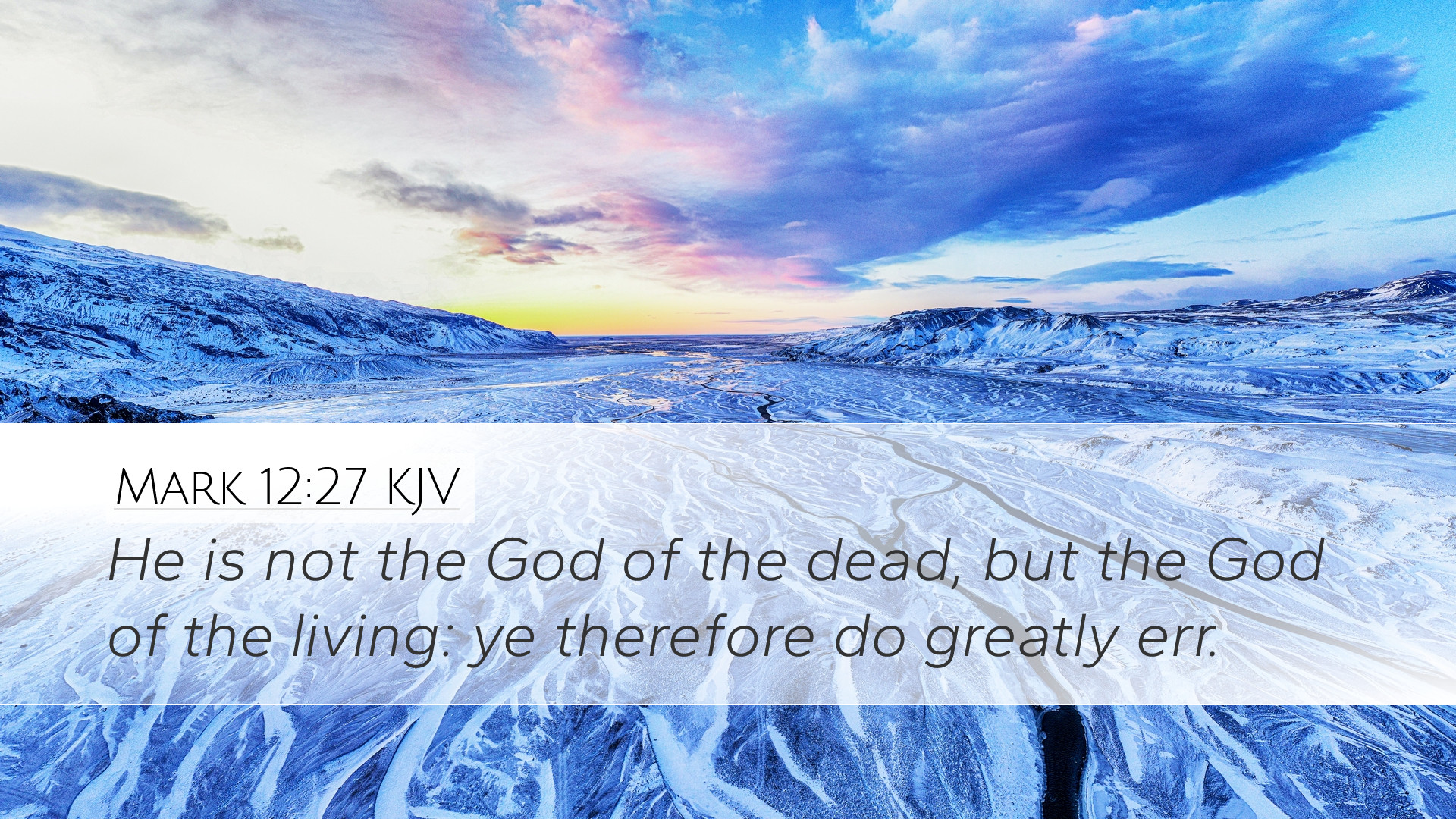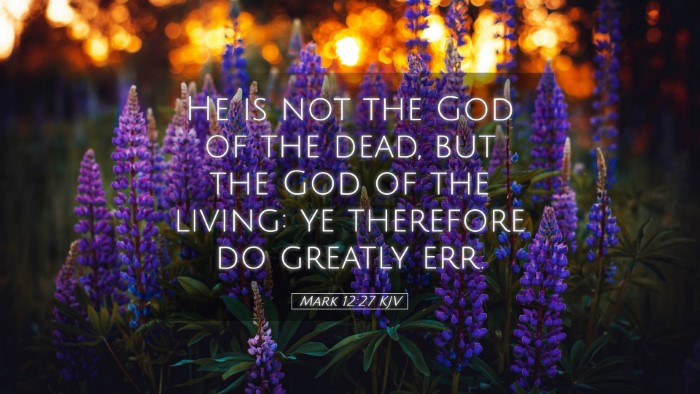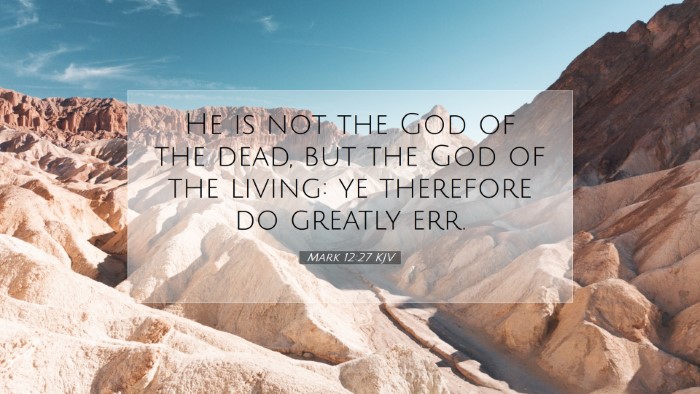Commentary on Mark 12:27
Verse Context: Mark 12:27 states, "He is not the God of the dead, but the God of the living: ye therefore do greatly err." This verse occurs during a confrontation between Jesus and the Sadducees concerning the resurrection, a central tenet of Jesus' teaching and the Christian faith.
Introduction
This commentary seeks to explore the profound theological implications of Mark 12:27 by integrating insights from several public domain commentaries, including those of Matthew Henry, Albert Barnes, and Adam Clarke. The verse highlights God's relationship with humanity, emphasizing His nature as a living God who engages with His creation beyond earthly death.
Theological Implications
The declaration that God is the "God of the living" implies several critical theological truths:
- The Nature of God: God is inherently associated with life. His existence transcends physical death, affirming the belief in resurrection and eternal life.
- Hope in Resurrection: For Christians, this verse is a cornerstone affirmation that death is not the end but a transition to a more profound existence in God’s presence.
- Revelation of Error: Jesus's statement serves as a means of correcting the Sadducees’ misconceptions about death and resurrection, underscoring the importance of accurate theological understanding among believers.
Insights from Public Domain Commentaries
Matthew Henry's Commentary
Matthew Henry emphasizes that this verse serves to demonstrate the misapprehension of the Sadducees regarding the nature of God and eternal life. He comments on the notion that God, as the God of the living, implies that those who are physically dead are not lost to Him, but rather are alive in His presence. Henry further notes that the proper understanding of God’s relationship to humanity should inspire believers to live in the light of eternity.
Albert Barnes' Commentary
Albert Barnes elaborates on Jesus' assertion about God being “not the God of the dead, but the God of the living.” He illustrates that the patriarchs—Abraham, Isaac, and Jacob—remain in a relationship with God that persists beyond death. Barnes argues that this doctrinal truth emphasizes the continuity of existence after physical demise, thus providing profound comfort to believers regarding the fate of their loved ones who have passed away in faith.
Adam Clarke's Commentary
Adam Clarke provides insight into the cultural and religious context of the Sadducees' beliefs, as they did not accept the resurrection of the dead. He stresses that Jesus’ teaching confronts and corrects this view by affirming that God is intimately involved with humanity, indicating that the resurrection is not merely a future hope but is grounded in the very character of God. Clarke affirms that this passage is essential for understanding the nature of God’s promises to His people.
Applications for Pastors, Students, and Scholars
The teachings encapsulated in Mark 12:27 resonate deeply with various audiences:
- For Pastors: This verse can be a powerful tool in preaching about the hope of resurrection and the nature of God. It emphasizes that God’s engagement with humanity is eternal and encourages congregations to hold steadfastly to their faith in the promise of eternal life.
- For Students: Students of theology should delve into understanding the implications of this verse within the larger narrative of Scripture. Recognizing the Sadducees' error highlights the necessity for sound doctrine in interpreting the Scriptures.
- For Scholars: Scholars can analyze this text's historical and cultural contexts, as well as its implications for contemporary discussions on resurrection and eternal life. This verse provides a robust foundation for biblical hermeneutics concerning life after death.
Conclusion
Mark 12:27 serves as a profound affirmation of the nature of God as the God of the living. Through the insights of Matthew Henry, Albert Barnes, and Adam Clarke, it becomes evident that understanding this truth is essential for engaging with the doctrines of eternal life and resurrection. An accurate hermeneutical approach to this verse equips believers to correct misunderstandings, reinforce hope, and engage responsibly with the theological implications of life beyond death.


